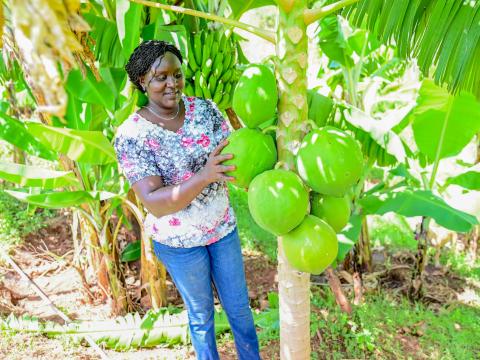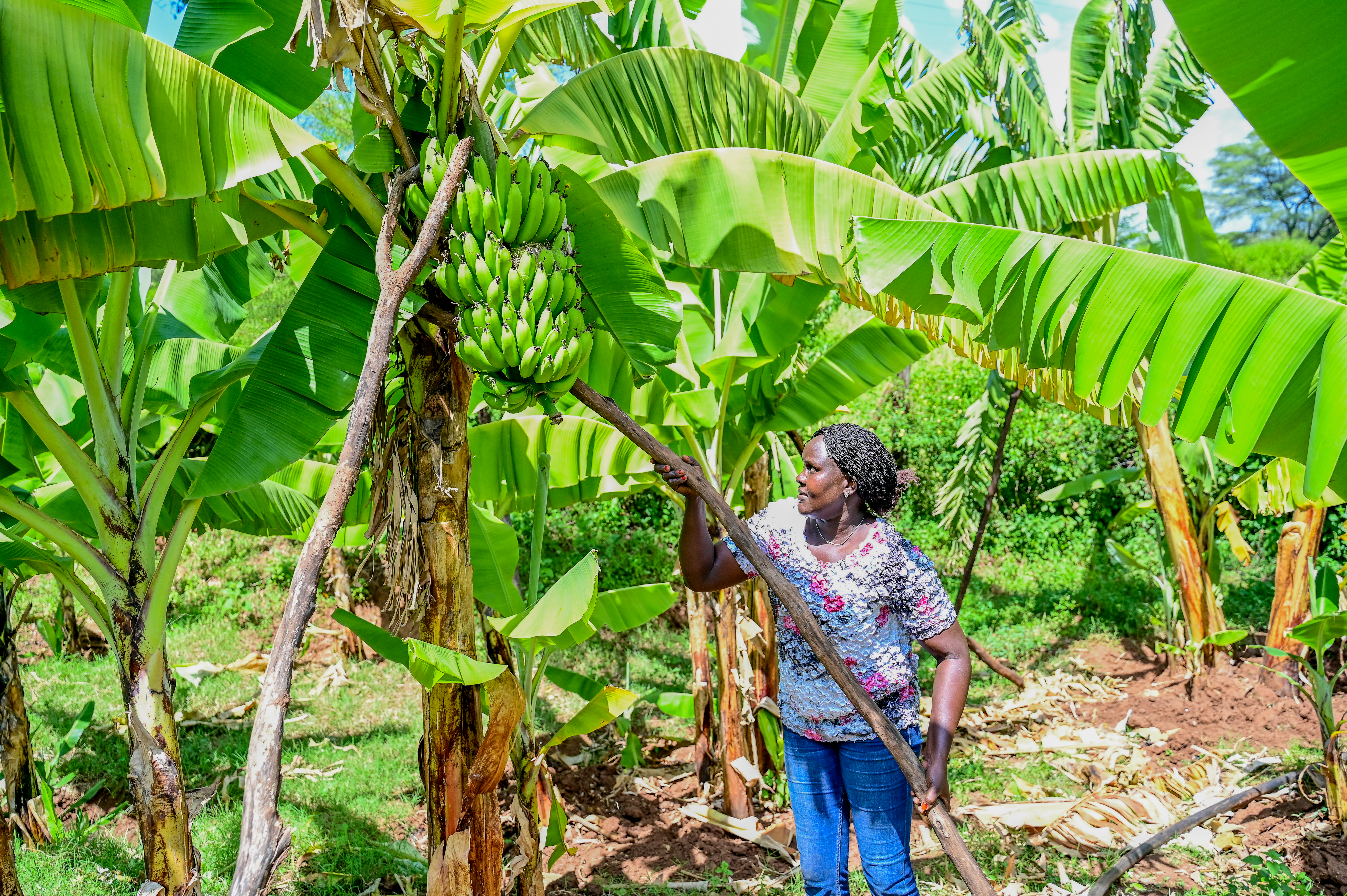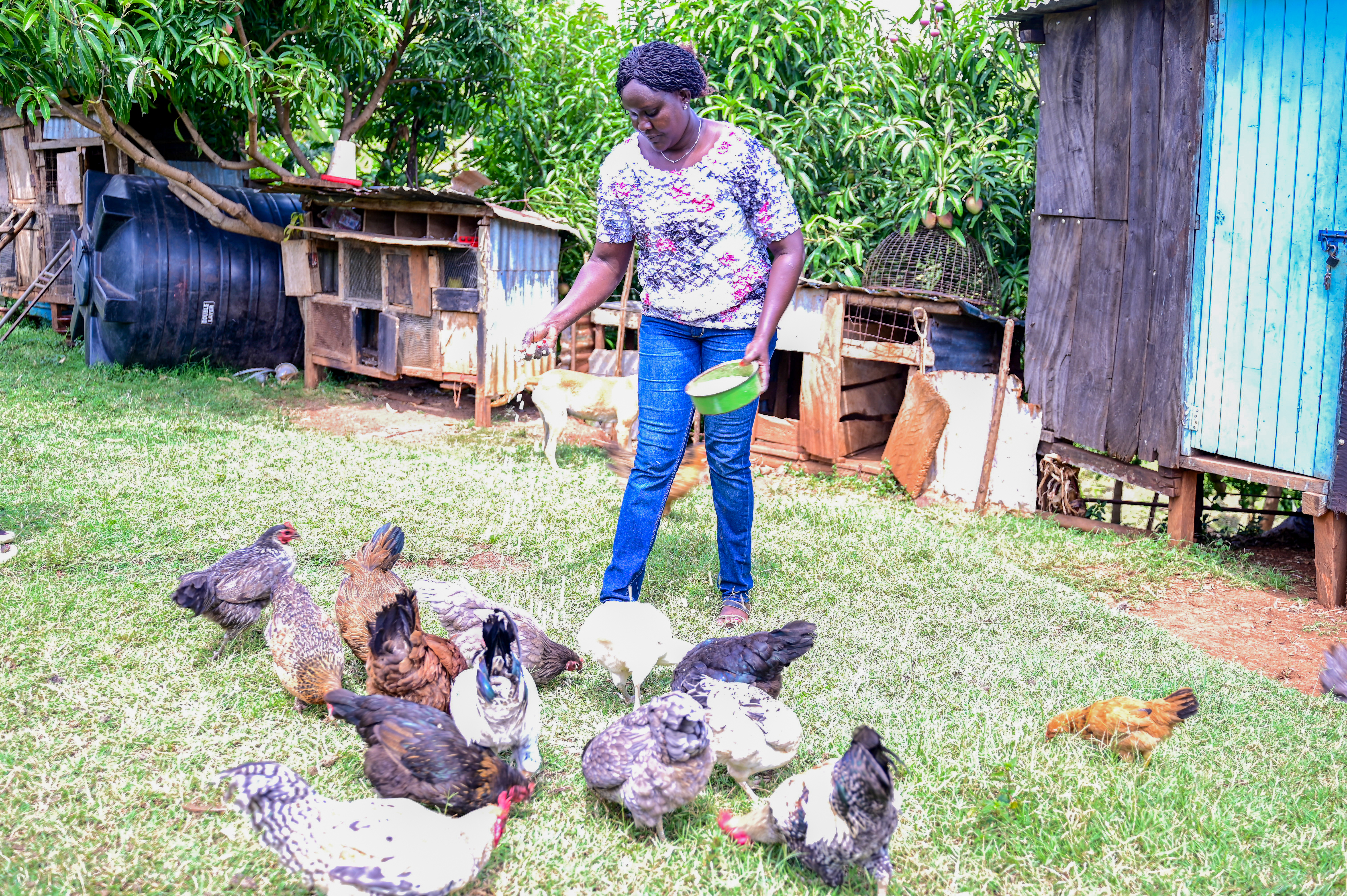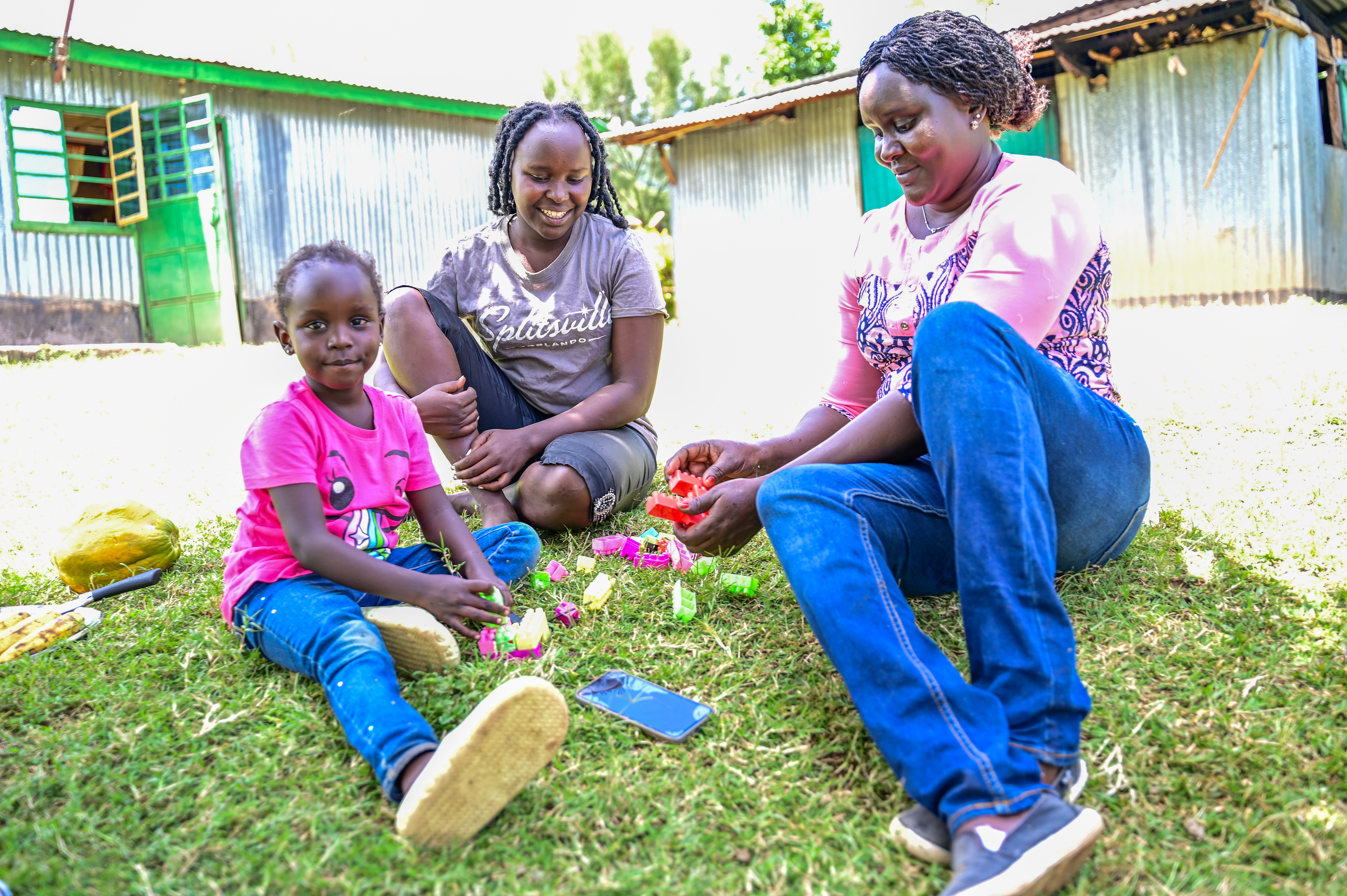Boosting sustainable livelihoods through Farmer Managed Natural Regeneration

“In the past, we would cut down trees to make room for planting crops. That was before World Vision taught us the beneficial contribution of indigenous trees to our crops and land,” says 43-year-old Nancy Sawe, a widow and mother of two girls residing in Kiptogoch village, Elgeyo Marakwet County.
Due to her noticeable passion for farming, Nancy was selected by her community to be a lead farmer and an implementer of the Farmer Managed Natural Regeneration (FMNR), a low-cost tree regeneration approach that offers sustainable livelihoods options for communities frequently hit by drought as a result of climate change.
Nancy has effectively utilised her 2-acre plot of land ensuring that it produces sufficient food and income to sustainably provide for her family. Nancy’s fenced FMNR farmland sits next to the Kimwarer river. The regenerated trees on this land provide her with firewood all-year round.

“Previously, we could walk for roughly two Kilometers to find firewood in the forest. It was dangerous due to the fear of being attacked by snakes and scorpions.” Says Nancy. “Now that I can easily access firewood from my homestead, I have more time to spend with my children and keep abreast of farming and national developments.”
Nancy says her FMNR farmland was overgrown with unproductive shrubs but after pruning, thinning and fencing the area, it is now a source of native grass, providing ample pasture to feed her livestock.

In addition to FMNR, Nancy practices fruit farming, soil and water conservation techniques such as terracing, and Climate-Smart Agriculture by cultivating drought-resistant crops.
She plants bananas, pawpaws, oranges, mangoes, vegetables, sweet potatoes, beans, and avocadoes, which not only provide her with revenue but also help her family maintain a healthy diet.
During the last harvest, Nancy sold mangoes worth 4,400 Kenyan shillings (26.82 USD). She also earns at least 2,000 Kenyan shillings (12.19 USD) per week from selling pawpaws and bananas. The proceeds from her farm produce are used to pay school fees for her daughters and cater for other household necessities.

“I saved up money in order to purchase solar lighting. I am happy because blackouts are now a thing of the past in my home,” Nancy states.
Trees in her land increase soil fertility and provide shade for her crops thus the high and healthy crop yields. The once-deep gulleys are gradually diminishing thanks to building terraces and the banana plantations that have reduced soil erosion. Nancy also rears chicken that are solely for household consumption. She says chicken meat and eggs are a good source of protein for their diet.

“I have gained a lot of knowledge from World Vision trainings. Most importantly from exposure visits where we see the farming practices of other Lead Farmers. It motivates me to keep doing my best so that others can also learn from me,” Nancy says.
As exposure visits have been an integral part of her growth, she is now also a source of inspiration to locals in her village. Nancy’s farm is a demonstration site where many come to learn from her expertise in natural regeneration and farming.
Through implementation of restoration techniques such as FMNR and other complementary components, farmers like Nancy can enjoy the holistic impact of this practice. They are able to increase their crop yields and household income enabling their families to access ENOUGH nutritious food for a healthier lifestyle.

World Vision through the Central Rift Farmer Managed Natural Regeneration Scale Up Project (CRIFSUP) is working with 1000 participants (Lead Farmers) across 4 counties in Kenya (Baringo, Elgeyo Marakwet, Nakuru and West Pokot), who are implementing the Farmer Managed Natural Regeneration (FMNR) approach. The CRIFSUP project that is now in the second phase is funded by the Australian Government.
By Hellen Owuor, Communications Specialist (CRIFSUP), World Vision Kenya